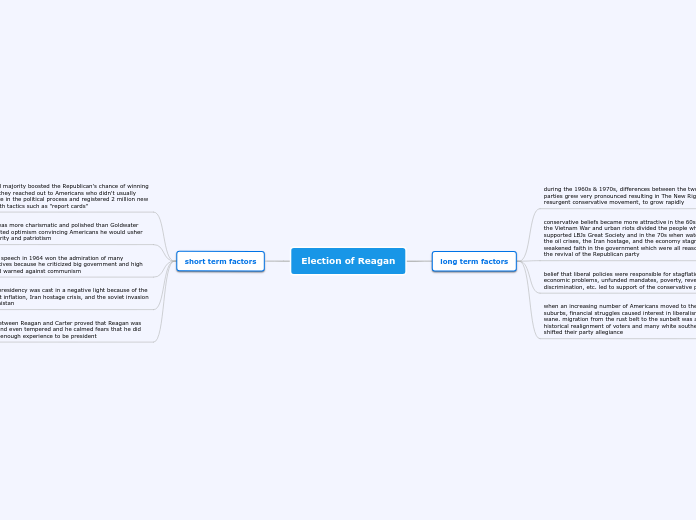
during the 1960s & 1970s, differences between the two parties grew very pronounced resulting in The New Right, the resurgent conservative movement, to grow rapidly
conservative beliefs became more attractive in the 60s when the Vietnam War and urban riots divided the people who supported LBJs Great Society and in the 70s when watergate, the oil crises, the Iran hostage, and the economy stagnating weakened faith in the government which were all reasons for the revival of the Republican party
belief that liberal policies were responsible for stagflation, economic problems, unfunded mandates, poverty, reverse discrimination, etc. led to support of the conservative platform
when an increasing number of Americans moved to the suburbs, financial struggles caused interest in liberalism to wane. migration from the rust belt to the sunbelt was a historical realignment of voters and many white southerners shifted their party allegiance
the moral majority boosted the Republican's chance of winning because they reached out to Americans who didn't usually participate in the political process and registered 2 million new voters with tactics such as "report cards"
Reagan was more charismatic and polished than Goldwater and radiated optimism convincing Americans he would usher in prosperity and patriotism
Reagan's speech in 1964 won the admiration of many conservatives because he criticized big government and high taxes and warned against communism
Carter's presidency was cast in a negative light because of the persistent inflation, Iran hostage crisis, and the soviet invasion of Afghanistan
debate between Reagan and Carter proved that Reagan was friendly and even tempered and he calmed fears that he did not have enough experience to be president